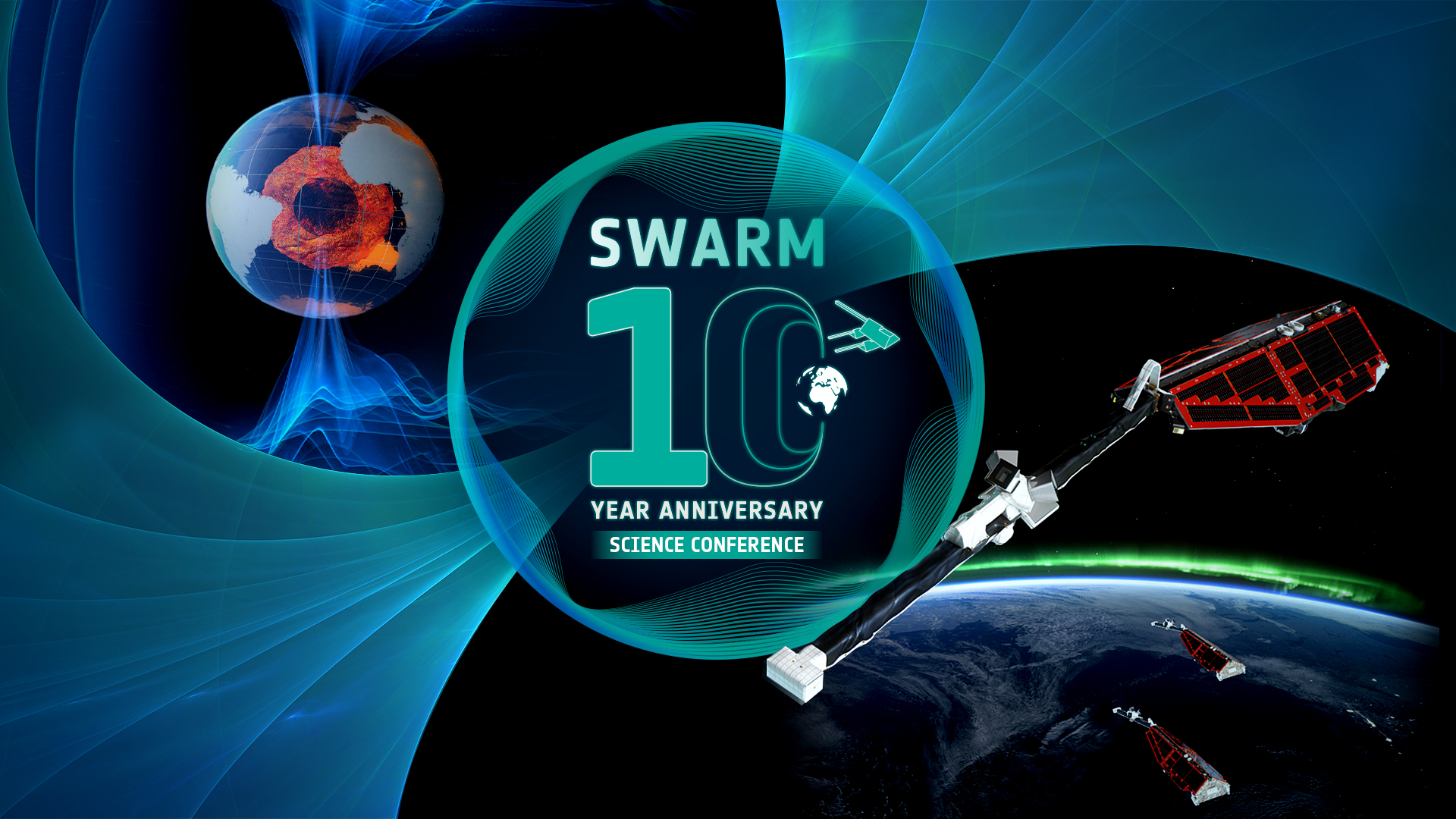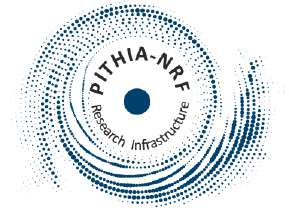The Journal of Space Weather and Space Climate (JSWSC) opens the Topical Issue “Swarm 10-Year Anniversary”, deadline 15 February 2025.
The topical issue (TI) is dedicated to new results from ESA’s Swarm mission, in particular to investigations of the Magnetosphere-Ionosphere Coupling, Ionospheric and Thermospheric processes, and their implications for Space Weather, including potential impacts on critical infrastructure. This issue seeks to bring together cutting-edge studies that shed light on the quiet-time and dynamic ionosphere, including the study of Alfvén waves, Equatorial Spread-F events, plasma bubbles, ULF plasma waves, Field-Aligned Currents etc.
Swarm is ESA’s first constellation mission for Earth Observation. The mission consists of three identical satellites, A(lpha), B(ravo), and C(harlie), which were launched on 22 November 2013 into a low altitude (~500 km) near-polar orbit. Swarm is dedicated to creating a highly detailed survey of Earth’s geomagnetic field and its temporal evolution, complemented by electric field and neutral atmosphere observations in the topside ionosphere-thermosphere. After an initial nominal mission of four years, until November 2017, Swarm was granted two four-year extensions, with an option to further extend the mission, possibly towards covering two solar cycles. Swarm data presents an invaluable opportunity to validate, refine, and augment existing knowledge in the upper atmosphere domain.
The European Space Agency organized the Swarm 10th Anniversary and Science Conference, 08–12 April 2024, in Copenhagen (Denmark). This conference aimed to bring together the wider international scientific community to celebrate the first 10 years of the Swarm mission, to explore and develop scientific applications and synergies, and to drive Swarm towards future achievements. The conference provided a unique and timely forum to share the state-of-the-art in research and applications, to review mission achievements, and to set the stage for the upcoming Swarm investigations. Presentations on the use of Swarm data for operational purposes and demonstrations of novel scientific applications contributed to a highly successful event. The meeting was also pivotal to outline the international collaboration in the exploitation of data, to propose new science goals, to identify new challenges in view of the extension of the mission beyond 2025.
While this Topical Issue arises from the Swarm 10-year anniversary conference, contributions are not limited to participants of the conference. The TI is open to all submissions that fit its scope. Submissions focusing on the near-Earth space science performed with Swarm, including external fields (e.g. magnetosphere-ionosphere-thermosphere coupling, quiet-time ionosphere, dynamic ionosphere etc.) and space weather aspects, are strongly encouraged. The integration of observations and models is particularly welcomed, fostering a deeper understanding of ionospheric physics within the context of space weather.
Guidelines for submission of papers are found on the JSWSC website under the tab “Instruction for Authors”.
Deadline: 15 February 2025
All manuscripts will be peer-reviewed according to the quality standards of international scientific journals. The type of contributions must fit the style of JSWSC. All manuscripts should contain enough new insight, present the results against a properly referenced background of existing work, and present adequate evidence that supports the conclusions. Accepted papers are published in electronic format only and are freely available to everyone via the JSWSC website. JSWSC offers the possibility to include electronic material, such as animations, movies, codes, and data.
Topical Editor-in-Chief (T-EiC):
- Georgios Balasis (gbalasis(at)noa.gr), National Observatory of Athens (NOA), Greece
Topical Editors (TE):
- Octav Marghitu (marghitu(at)gpsm.spacescience.ro), Institute for Space Sciences (ISS), Bucharest, Romania
- Johnathan Burchill (jkburchi(at)ucalgary.ca), Department of Physics and Astronomy, University of Calgary, Canada
- Enkelejda Qamili (Enkelejda.Qamili(at)ext.esa.int), ESRIN, European Space Agency (ESA), Italy
- Karl M. Laundal (karl.laundal(at)uib.no), Birkeland Centre for Space Science, University of Bergen, Norway
For questions regarding this Topical Issue, please, contact the T-EiC. For questions concerning the submission process, please contact the Editorial Office (jswsc(at)edpsciences.org).






